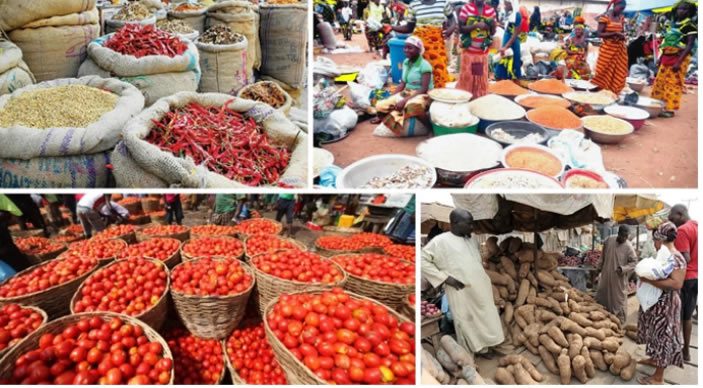
Food prices plummet in Yobe, Borno, and Adamawa
Prices for perishable goods have significantly decreased in major towns across Yobe, Borno, and Adamawa states.
In Damaturu, Yobe, prices have dropped by roughly 50%. For instance, a large basket of tomatoes that cost N120,000 between April and May is now priced at N40,000, while a smaller basket has reduced from N75,000 to N18,000. Similarly, the cost of a bag of pepper has decreased from N170,000 to N82,000, and a bag of okra has fallen from N50,000 to N25,000.
However, the price of onions has risen, with a bag now costing N50,000 compared to N28,000 to N30,000 a few months ago. Market Chairman Alhaji Muazu Abbas attributed the decline in prices to the influx of new goods.
Conversely, yam prices have surged at Bayan Tasha Market, with two small tubers now costing N4,000 compared to N1,500 in 2023, and three large tubers rising from N3,500 to N15,000. Yam Sellers Leader Alhaji Habibu Mohammed cited supply shortages and increased transportation costs from states like Taraba and Benue as reasons for the hike.
Alhaji Usman Ngari, Chairman of the All Farmers Association of Nigeria, Yobe Chapter, expressed concern about the high costs of establishing food crop storage facilities, which he said are capital-intensive. He urged government support for farmers to enhance productivity and income.
In Borno, perishable prices mirror those in Yobe, but traders anticipate further declines as local harvests begin. Isa Mohammed, a Maiduguri vegetable dealer, noted current supplies are sourced from Kaduna and Kano. Grain prices in Borno, such as local rice and beans, remain high and are expected to drop only after the October harvest.
Adamawa is experiencing similar trends, with perishables falling in price due to harvests, but grains remain expensive. Alhaji Aliyu Mohammed of the Nigeria Small Scale Industrialists reported that a 100kg bag of maize has increased from N60,000 to N90,000, and white beans have risen from N75,000 to N160,000. He suggested that prices may change once the new harvest starts.




